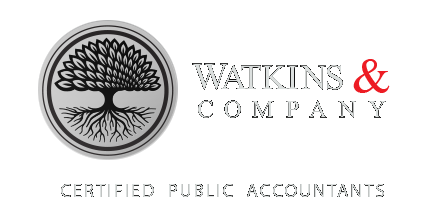New Tax Law: Taking Advantage as a Small Business
Every year, new tax laws and IRS regulations change, sometimes mildly and other times, quite dramatically. However, the TCJA (Tax Cuts and Jobs Act) out paces any recent changes to tax legislation by a long shot. Since much of the new legislation will be in affect for 2018 taxes, it is important for all small businesses to take advantage of this new information. Here are some important changes and advantages that small businesses should consider ahead of preparing their 2018 tax return in accordance with the new tax law.

Effective Dates
First things first. These are the dates that federal income taxes are due for varying types of business entities.
- Corporations: April 17, 2019
- Sole Proprietors and single-member LLCs preparing their business taxes on Schedule C: April 15, 2019
- Partnerships and S Corporations: March 15, 2019
It is imperative that, as a business, you prepare for these dates, have a plan to meet these dates, and ultimately file and pay taxes by these dates. Preparing ahead of time and understanding these new laws will save you time, money, and trouble.
Depreciation Increased Deductions
The two accelerated depreciation benefits approved by congress include the permanent increase on Section 179 deductions on purchases of business assets AND an increase on bonus depreciation (from 50% to 100%) on the purchase of new equipment. Although bonus depreciation has been reinstated, it will phase out over the next several years.
20% Business Income Deduction
The tax reform bill blessed C corporations with an enormous tax rate cut to 21% from the previous 35%. These large companies will see immense tax savings as a result, however, small businesses could not be graced with a simple tax rate drop as many of these entities are “pass-through” entities. This means the business entities do not pay taxes themselves, rather, the business owner pays the business taxes on their personal return. In order to give small businesses a similar tax break, congress elected for the new 20% Qualified Business Income Deduction.
Individual business owners with a taxable income of less than $157,500 and married taxpayers filing jointly with a taxable income of less than $315,000 will enjoy a 20% deduction of their business’s net income.
If your taxable income is higher than these thresholds then fear not. You are still entitled to a deduction, but there are certain limitations and exceptions that apply based on a few other factors.
Lost or Difficult-to-attain Business Deductions
Previously, interest paid on business loans was usually a deductible expense. With the new tax law in effect, businesses are only allowed to write off the interest expenses equal to 30% of adjusted taxable income. This could hurt businesses who finance through debt if not handled carefully by someone who understands the exceptions and limitations that apply.
The Net Operating Losses (NOL) previously could be used to reduce taxes paid in the previous 2 tax years or to reduce future taxable income for 20 years thereafter. Now, the NOL has a limitation of 80% and can only be carried forward.
The entertainment expense, to the dismay of many, has been completely done away with. Those football tickets and amusement park visits on the company dime have gone from being 50% deductible to not deductible at all. Click here to see other popular deductions that have been done away with or changed.
Like with any tax reform, there will be an adjusting period as business owners and tax preparers alike settle into the groove of the new legislation. Contact us at Watkins & Company to ensure tax savings for the tax year 2018 and beyond.
By Ricky M. Hackler





You must be logged in to post a comment.